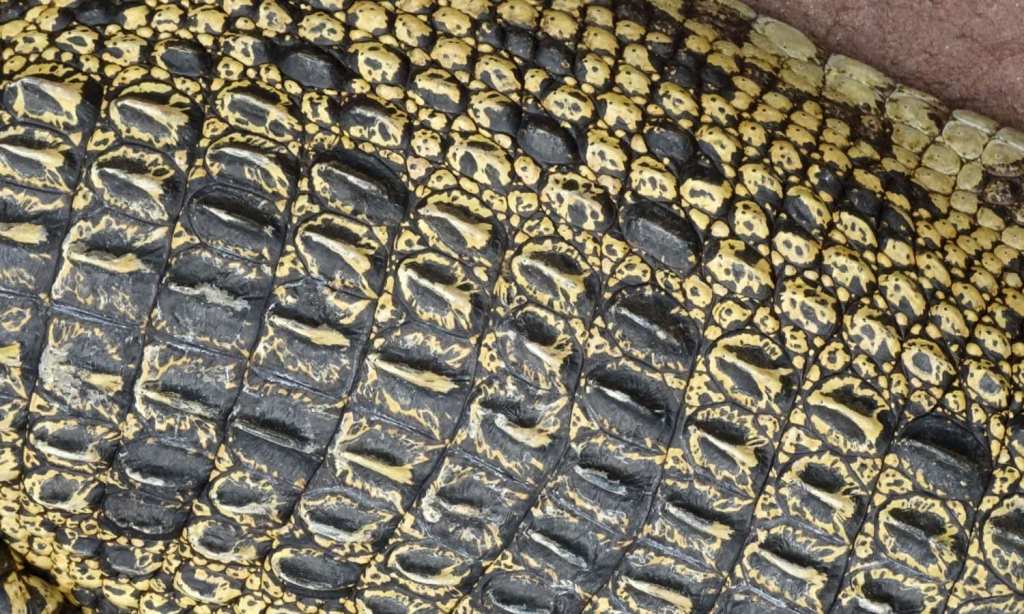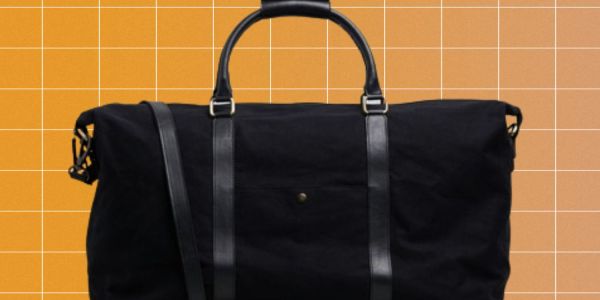Warning: This post contains graphic content.
When you picture the Australian Outback — particularly, the beautiful Top End — you probably envision crocodiles. Gigantic, powerful, and prehistoric crocodiles are Aussie icons who are even revered as totem animals by Indigenous people of the Torres Strait.
However, behind the tourism campaigns featuring images of wild crocodiles roaming free amid billabongs, lies the Top End’s bloody secret: Australia’s enormous crocodile-skin trade.
Even though the macabre practices of this cruel industry are hidden from the public, its products could not be more heavily promoted, as major fashion houses peddle “luxury” bags, purses, wallets, and shoes.
While most consumers have seen ads for exotic skins splashed across magazine pages, for a long time what they didn’t see is the blood of living, feeling animals splashed across kill room floors.
Thanks to investigations into this gruesome trade by animal rights groups, that’s changing — and now, consumers all over the world are urging labels to “drop croc”.
Confinement, Cruelty, and Killing
Earlier this year, new eyewitness footage supplied to the Kindness Project by the Farm Transparency Project revealed the true price of exotic-leather accessories, with an inside peek at the practices of four farms in the Northern Territory — all with links to a major fashion house.
The footage is more than eye-opening — it’s stomach-churning. Drone footage reveals what can only be described as a factory farm, with rows upon rows of dank, dark warehouses full of barren concrete pens housing thousands of confined crocodiles, each with little more room than the length of their body.
At only two or three years old — after a couple of months in solitary confinement with only scraps of maggot-ridden chicken carcasses as company — crocs are electrocuted and dragged from their pens, convulsing.

Workers then shoot them in the head with a captive-bolt gun before severing their spine and inserting a screwdriver into their brain. They are then skinned for trinkets. At least three crocodiles must suffer this way for just one luxury bag from a certain fashion house.
The World Is Taking Note
While Australia accounts for 60% of the global trade in saltwater crocodile skins and the Northern Territory is by far the biggest player, this cruelty occurs everywhere.
For years now, animal rights groups have been campaigning against the barbaric practice, investigating farms in Texas, Vietnam, and Zimbabwe.
This past year has also seen protests outside a luxury brand’s stores in New York, London, Paris, and most Australian capital cities.
In 2020, Stockholm Fashion Week kicked off with a ban on exotic skins, meaning no crocodile, snake, ostrich, or alligator skin. Other shows followed suit, like Helsinki and, closer to home, Melbourne Fashion Week, also banned exotics from their catwalks.
Consumers Hold the Power to Save Crocodiles
Currently, PETA Australia is seeking public support to block plans for a new Northern Territory crocodile farm which would imprison some 50,000 animals, but — as with any industry that causes harm but generates dollars — it can’t be left to policymakers to end this trade.
At the heart of the “drop croc” movement are consumers who are willing to put themselves in crocodiles’ shoes instead of in crocodile shoes and say NO to luxury brands that see animals as mere fabric swatches.
Fortunately, there are loads of glamorous vegan alternatives are available. Here are just a few.
Sans Beast
Committed to creating beautiful accessories without harming animals, Sans Beast (founded by the former creative director of MIMCO) releases limited-edition seasonal collections that combine the colours of nature with the functionality needed for life in the city.

THEMOIRè
A sustainability project fresh from Milan, THEMOIRè uses cactus, apple skins, recycled fishing nets, and other materials to create luxury pieces with Italian fashion flair and no harm to animals.
PETA + JAIN
Designed for lovers of animals, versatility, and joy, PETA + JAIN creates everything from belts to totes, with a focus on sustainability, recycled materials, and vegan looks that reflect both the runway and the street.

Urban Originals
“Drop-dead gorgeous and uber practical” is the philosophy behind this Australian brand that’s now gone global. If you’re looking for recycled material options and low-chemical glam, you’ve found them.
Read more stories from The Latch and subscribe to our email newsletter.







